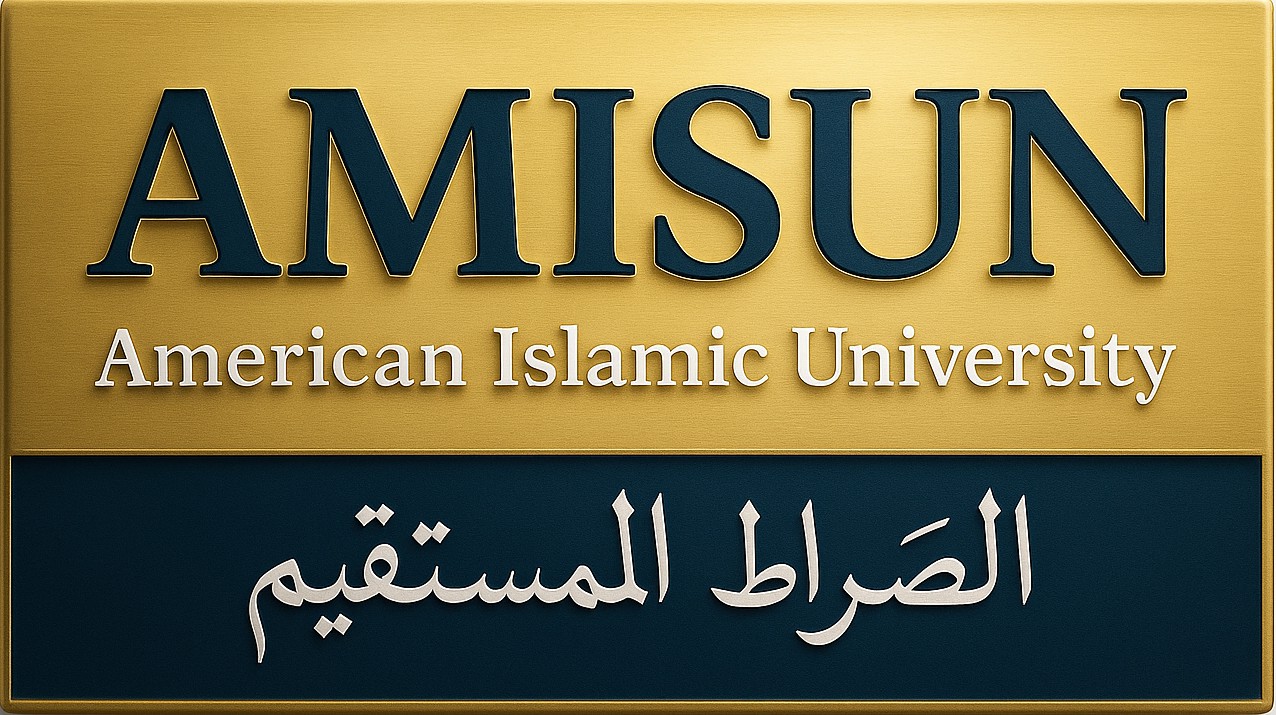

The Faculty of Islamic Studies serves as the intellectual and spiritual core of AMISUN. It upholds the Qur’an and Sunnah as the ultimate sources of divine guidance, cultivating scholars who unite faith, intellect, and service. This mother faculty forms the foundation of all other disciplines, ensuring that every student of AMISUN remains rooted in revelation while engaging the world with ethical reasoning and wisdom.
The faculty harmonizes preservation with progress — empowering graduates to interpret classical texts, address modern issues, and exemplify Islamic character in academic, legal, and community settings. Its curriculum bridges centuries of knowledge, inspiring a new generation of scholars who embody the prophetic balance between faith and reason.
This department is dedicated to the study and interpretation of the Qur’an — the eternal Word of Allah. Students engage with ʿulūm al-Qurʾān, linguistic structure, thematic exegesis, and modern application of divine principles. Graduates emerge as scholars who bridge revelation and reality, ensuring the Qur’an’s message remains vibrant and transformative in every age.
The Hadith and Sunnah department preserves the prophetic legacy through rigorous study of mustalaḥ al-ḥadīth, authentication sciences, and applied Sunnah ethics. Students learn how prophetic guidance informs law, governance, leadership, and personal conduct — reviving the living model of mercy and justice embodied by the Prophet Muhammad ﷺ.
Arabic is the vessel of revelation. This department trains students in grammar (naḥw), morphology (ṣarf), and rhetoric (balāghah), enabling them to access sacred texts without linguistic barriers. Advanced courses integrate modern linguistic theory and language pedagogy to produce eloquent communicators of Islamic scholarship.
This department explores the journey of Islamic civilization from the early Caliphates to the global Golden Ages. Students analyze intellectual movements, reformist ideas, and the civilizational ethics that shaped science, art, and governance in the Muslim world. The goal is to rekindle the civilizational brilliance that once illuminated humanity.
Engaging the modern world with faith, this department promotes interdisciplinary dialogue among theology, philosophy, and social sciences. It encourages interfaith understanding, critical inquiry, and reasoned debate rooted in revelation — training thinkers to present Islam’s universal message of peace, coexistence, and moral renewal.
Each program integrates faith with research and social engagement, producing graduates ready to serve as educators, jurists, imams, and community leaders who embody prophetic ethics and scholarly precision.
View Programs & Courses →